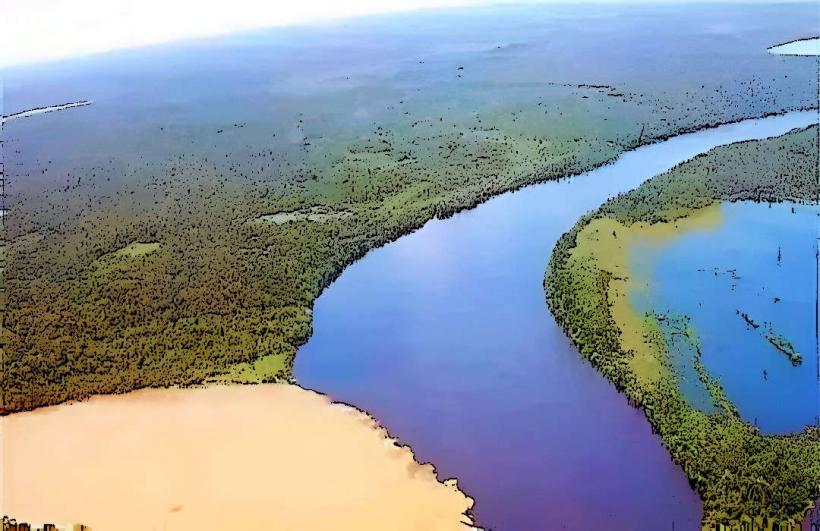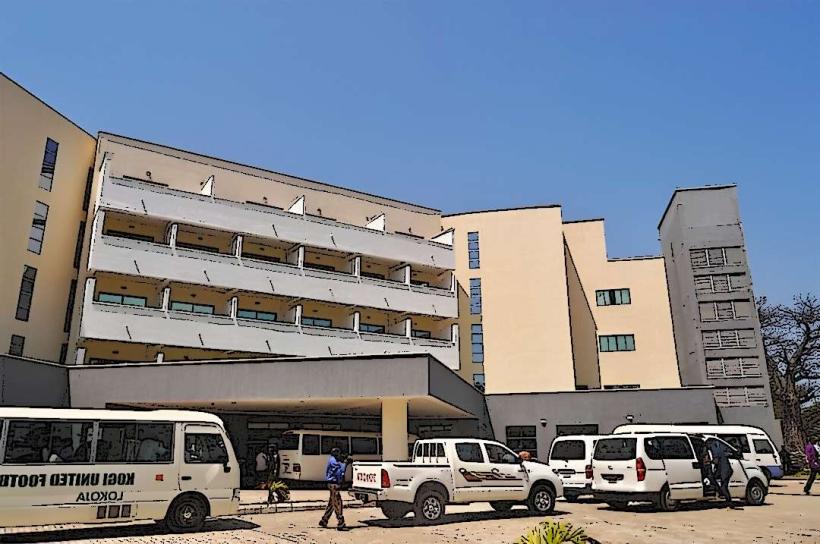Information
City: KogiCountry: Nigeria
Continent: Africa
Kogi, Nigeria, Africa
Kogi State is often referred to as the Confluence State because it is where Nigeria’s two largest rivers - the Niger and Benue - meet. Strategically located in the North Central geopolitical zone, Kogi serves as a key link between northern and southern Nigeria. It is known for its ethnic diversity, historical significance, and rich mineral resources.
Here is a detailed overview of Kogi State:
1. Geography and Location
Region: North Central Nigeria
Capital: Lokoja
Land Area: Approximately 29,833 km²
Borders:
North: Niger and Nassarawa States
East: Benue and Enugu States
South: Anambra, Edo, and Ondo States
West: Kwara and Ekiti States
Topography:
Mix of hills, valleys, rivers, and plains.
The Niger-Benue confluence is a major geographic feature.
Forest-savannah transition zone dominates vegetation.
2. History
Created: August 27, 1991, from parts of Kwara and Benue States under General Ibrahim Babangida’s administration.
Historically part of the Northern Region and later the Kwara and Benue States before its creation.
Lokoja, the capital, was once the administrative headquarters of the British protectorate of Northern Nigeria.
3. Administrative Structure
Governor (as of last update): Ahmed Usman Ododo
Number of Local Government Areas (LGAs): 21
Notable LGAs: Lokoja, Dekina, Okene, Kabba/Bunu, Idah, Ankpa, Ajaokuta, Okehi, Bassa, Igalamela/Odolu.
4. People and Culture
Major Ethnic Groups:
Igala (east)
Ebira (Igbira) (central)
Okun (Yoruba sub-group) (west)
Others: Bassa, Nupe, Gwari, Hausa, Idoma (minorities)
Languages:
Igala, Ebira, Okun (Yoruba dialect), Bassa, and others.
English is the official language; Hausa is also used for communication.
Religion:
Islam and Christianity are both widespread.
Traditional African religions are still practiced, especially during festivals and rites.
Traditional Institutions:
Key monarchs include:
Attah of Igala (Idah)
Ohinoyi of Ebiraland (Okene)
Obaro of Kabba (Okun-Yoruba region)
These rulers have significant cultural and historical influence.
5. Economy
Agriculture: Primary livelihood for most residents.
Crops: cassava, yam, maize, rice, guinea corn, groundnut, cashew, cocoa.
Cash crops: oil palm, coffee, cotton.
Livestock farming and fishing (especially near the Niger and Benue rivers).
Mining and Solid Minerals:
Kogi is one of Nigeria’s richest states in minerals.
Resources include: coal, iron ore, limestone, dolomite, marble, tantalite, bauxite, and gold (small-scale).
Ajaokuta Steel Company (one of Nigeria's most ambitious industrial projects) is located here, though still underutilized.
Trade and Industry:
Lokoja and Okene are major commercial hubs.
The state hosts both formal markets and informal trading networks.
Hydroelectric Potential:
Lokoja, Koton Karfe, and Ajaokuta are sites for possible hydroelectric projects.
6. Education
Major Tertiary Institutions:
Prince Abubakar Audu University, Anyigba (formerly Kogi State University)
Federal University, Lokoja
Kogi State Polytechnic, Lokoja
College of Education, Ankpa and Kabba
Several health, agriculture, and technical colleges.
Literacy rates are mixed, with urban areas outperforming rural ones.
7. Health
The state has public and private hospitals, general hospitals in LGAs, and primary healthcare centers.
Lokoja houses the Federal Medical Centre, a major health referral institution.
Challenges: shortages of healthcare personnel, outdated infrastructure in rural clinics, and periodic outbreaks of cholera and malaria.
8. Tourism and Cultural Attractions
Confluence of Rivers Niger and Benue – iconic natural site in Lokoja.
Mount Patti – hilltop overlooking Lokoja with historical significance; once home to colonial administrators.
Lord Lugard’s Residence – colonial administrative headquarters of Nigeria’s first Governor-General.
Inikpi Statue – monument to Igala princess Inikpi who sacrificed herself for her people.
Eganja Warm Spring – located in Okene LGA.
Osome Falls, Ukpake Caves, and natural forests offer eco-tourism potential.
Traditional festivals:
Italo Festival (Ebira)
Ovia Festival (Igala)
Ogani and Egwu Festivals (Okun/Yoruba areas)
9. Infrastructure
Transportation:
Roads link Lokoja to Abuja, Benin, Enugu, and Ilorin.
River transport is possible along the Niger and Benue, though underdeveloped.
Rail access via the Itakpe-Ajaokuta-Warri corridor (used for freight and planned passenger services).
Electricity: National grid supplies most urban centers; rural electrification projects ongoing.
Water Supply: Sourced from rivers, boreholes, and waterworks (though often unreliable).
10. Politics
Politically significant state, sometimes seen as a swing state between APC and PDP.
Kogi has produced notable politicians like:
Late Prince Abubakar Audu (first civilian governor)
Dino Melaye (former senator)
Yahaya Bello (former governor, 2016–2024)
Ethnic diversity plays a large role in political alignments, with zoning and power rotation among Igala, Ebira, and Okun being sensitive issues.
11. Challenges
Ethnic Tensions: Competition between Igala, Ebira, and Okun groups has led to political and communal disputes.
Insecurity: Banditry, kidnapping, and communal clashes in some areas.
Poor Infrastructure: Roads, healthcare, and educational facilities in rural regions need investment.
Underutilization of Ajaokuta Steel: Long-delayed revival affects industrial growth.
Youth Unemployment: High due to limited industrial activities.



